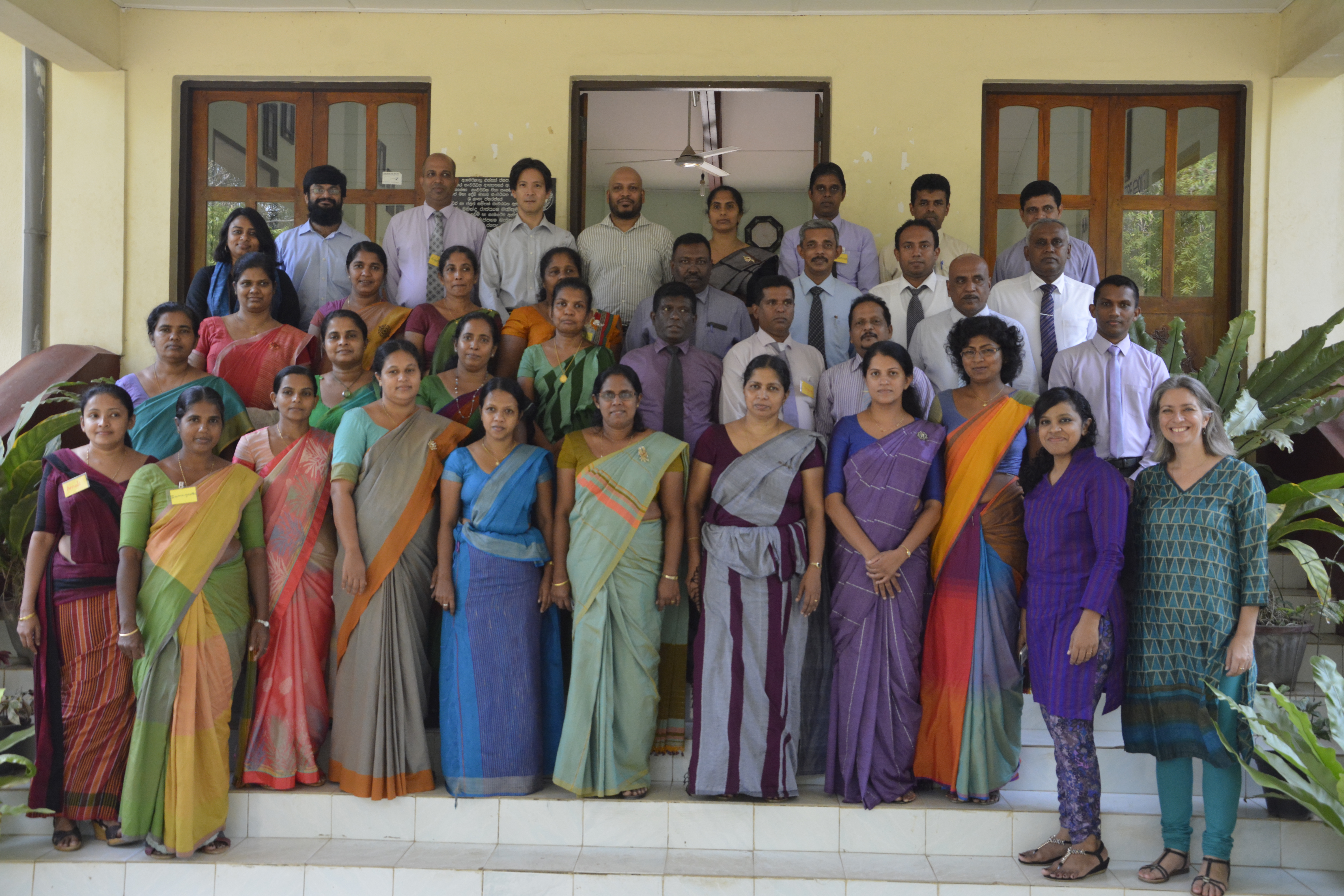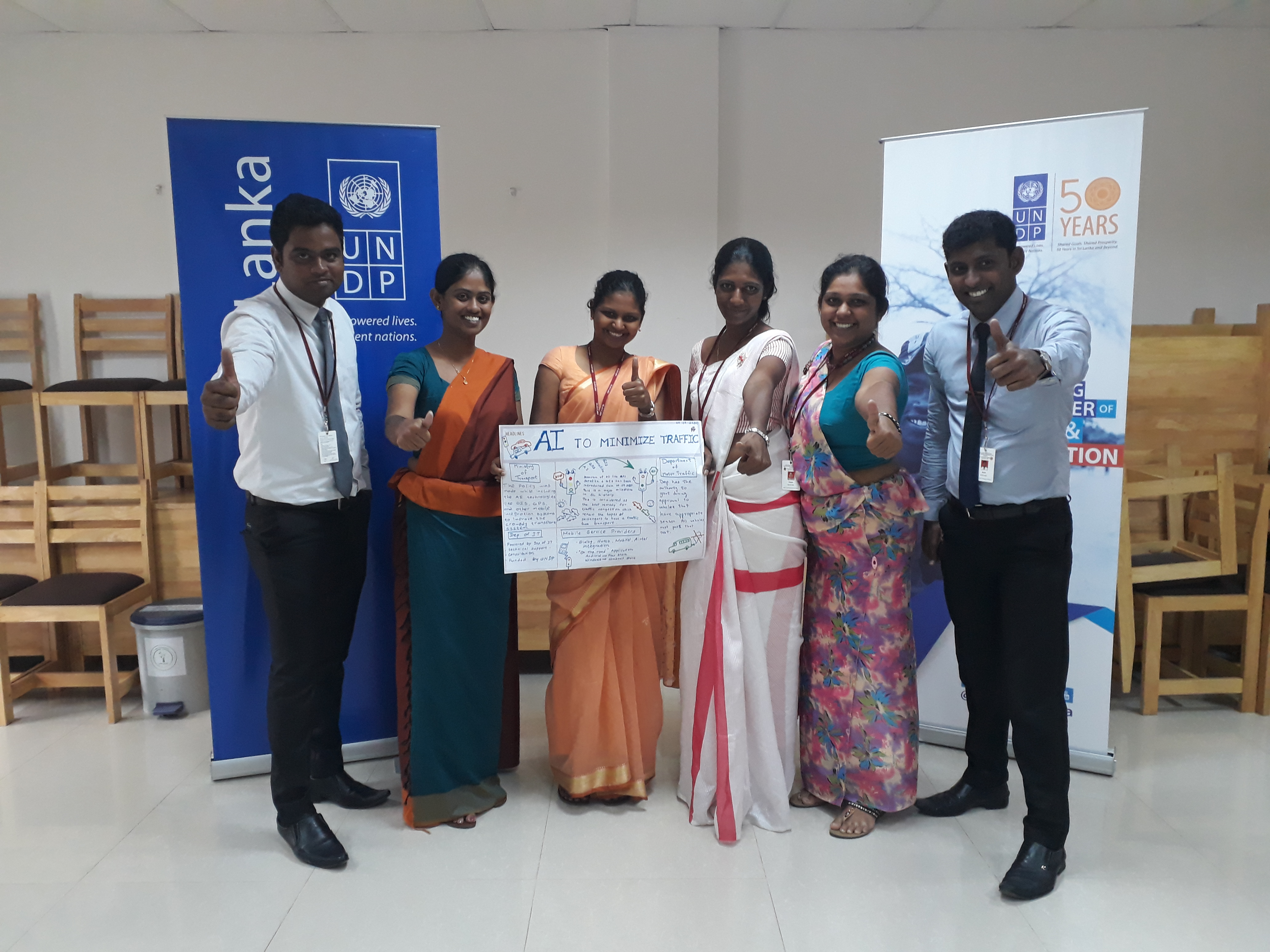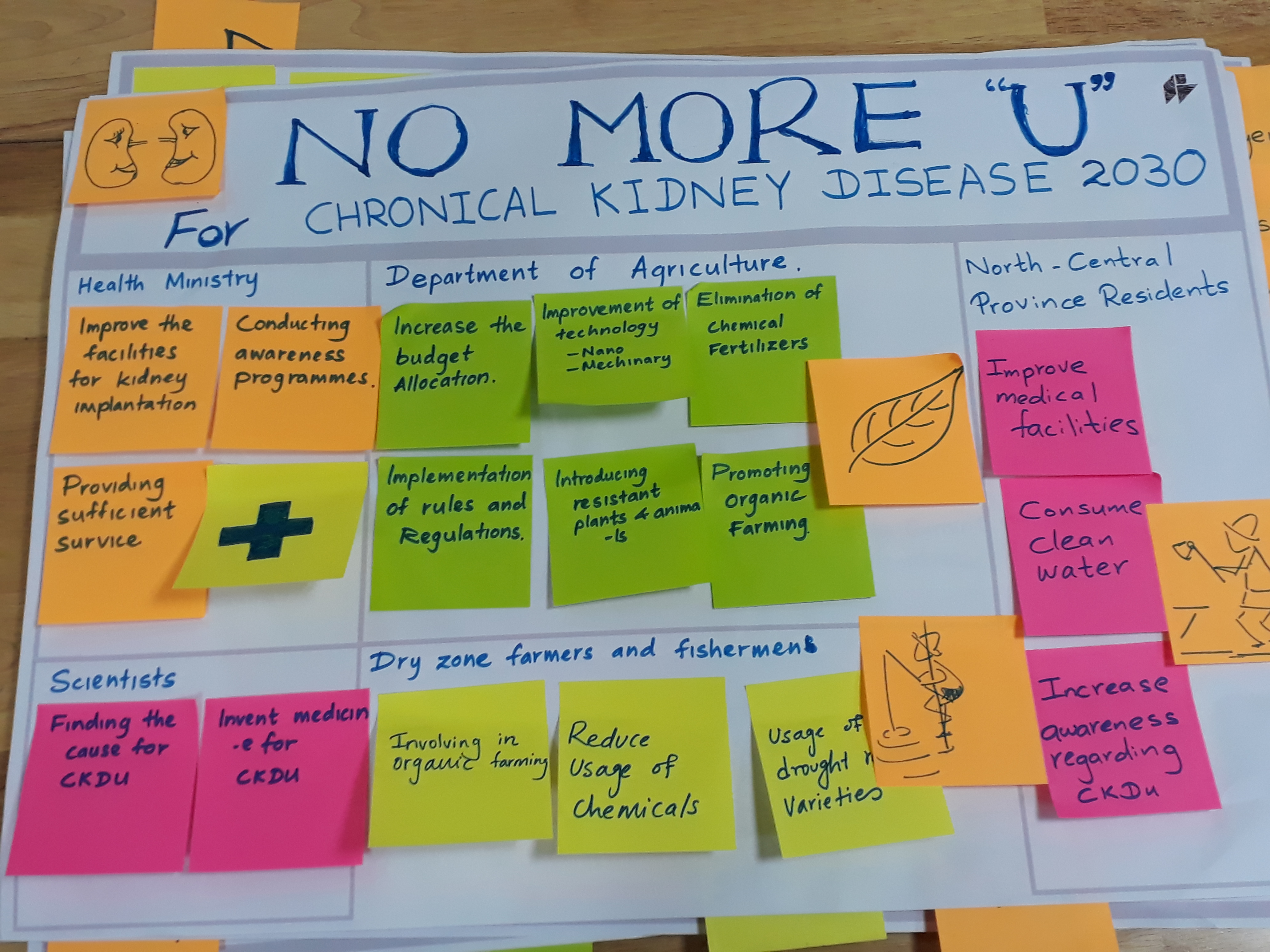Foresight & Innovation for Public Service Excellence
Given the highly globalized, inter connected, and unpredictable environment the world is currently in, a future ready Sri Lanka is imperative when envisioning a sustainable country in the 2030 Agenda. In working towards this goal, UNDP in collaboration with the Ministry of National Policies and Economic Affairs organized Sri Lanka’s first National Summit on Foresight and Innovation for Sustainable Human Development, held in May 2016. The Summit brought together more than 350 participants from the public, private, and development sectors, as well as international resource personnel from 9 different countries, including the United Kingdom, Moldova, Malaysia, Singapore, Denmark, and India.

The Summit was held with the objectives of starting a national dialogue on the importance of foresight and innovation as a value addition to traditional development planning to achieve sustainable human development. It also aimed at informing and familiarizing key development practitioners and planners with futuristic thinking, and real-time responsiveness to policy formulation thereby creating a country that is forward thinking, agile, innovative and is visionary in planning national and local development projects, and one which develops resilient policies.
The #2030Now Summit recommended several outcomes as next steps. One of the primary outcomes included developing a programme on Foresight and Innovation for the public sector officials. The Summit and its pre-Summit activities informed the need for an institutionalized programme that builds the capacity of development practitioners and planners, on foresight, innovation. The proposed programme will therefore be tailor-made to suit the requirements of the public sector to strengthen and transform them to become champions in the sustainable development process of the country.
UNDP and Nesta Partnership
UNDP is a leading development agency of the United Nations system that partners with countries in strengthening their institutions and supporting democratic governance. Since 1967, UNDP has worked in Sri Lanka as a key development partner, working to achieve sustainable human development in economic, social and environmental fronts, as well as playing a key role in boosting public sector performance.
It supported the Government of Sri Lanka’s efforts to improve its monitoring of aid flows (as identified in the Paris agenda) through the establishment of the Integrated National Data Information System (INDIS), which strengthens accountability of fund utilization and ultimately, the management of aid. In supporting governance structures, UNDP has been building the capacities of the central and de-concentrated arms of government, as well as the locally elected bodies. These are now in a strengthened position to plan and coordinate their development activities, using multiple sources of information, and adopting best practices for building design and land use. Overall, UNDP has also built a close relationship with Government agencies and other concerned institutions on collaborative work carried out under the different thematic areas of interest to both.
In working towards assisting public service delivery, the Sri Lanka office takes successful experiences from the UNDP Global Centre for Public Service Excellence in Singapore. Operational since December 2012, this unique collaboration between UNDP and the Government of Singapore is a global leader in its field, and has been a driving force behind the nation’s rapid economic and social successes. Singapore’s achievements provide inspiration for others seeking to build a professional public service with integrity, diversity and a focus on clients and results.
In addition to seeking the global expertise within the UNDP networks, it will also bring in a global leader in innovation work, the innovation foundation Nesta based in the UK. It supports new ideas to take-on current challenges in the world by empowering people to have the right tools to find solutions to these issues and shape a better future for the next generations.
Nesta works with a combination of partners in over 40 countries around the world, bringing together national governments, global technology firms, community groups and grass root level organizations all under one goal. They focus on practical projects to promote innovation for the public benefit, and has extensive successes in introducing innovation techniques to governments around the world.
Encompassing all these technical knowledge and expertise, the proposed Executive Programme on Foresight and Innovation will be developed by Nesta facilitated by UNDP, and will incorporate input from the Sri Lanka Institute of Development Administration (SLIDA) on how best to cater to the country’s public service needs. The proposed programmatic structure and selection criteria as mentioned below can be finalized upon the agreement of all parties involved.

Objective
The objective of this programme is to build an exclusive cohort of public service officials who will be exposed to new ways of development planning, calculated risk-taking, foresight, and integrated development services, thereby cultivating efficient public service delivery to meet the current development visions of Sri Lanka.
Selection Process
The programme will follow an independent and rigorous selection programme where 5 officials from each of the 6 services will be selected at a time, and will be open only to mid-level managerial officers with 10 to 15 years of professional experiences.
Selection will be based on an interview, and a proposal outlining how they will use the tools gained through the programme within the first 3 months of completing the course work.
Programme
The programme will follow a 5-day mandatory training model with external resource personnel both from UNDP and Nesta will carry out a pre-agreed, and customized material that is specifically targeting the needs of the public sector of the country. The components may include global leadership, problem solving methodologies, innovation in development, integrated solutions, understanding user journey, and design-thinking strategies, and other such tools to strengthen the officials.
After the completion of the programme, the officials will be convened for a 2-day recap session after 3 months to share their experiences in using these techniques and tools in their everyday processes. This will be guarantee the participants utilizing the skills they gain through the initial programme, and in so doing contribute towards the larger objective of this programme itself.

Recognition
The officials completing their course work will receive a certification of recognition awarded at an exclusive event with the participation of higher level government officials.
Additionally, public service officials who successfully complete this programme will also have the opportunity to engage closely with Citra and be a part of the extended Citra network of experts.